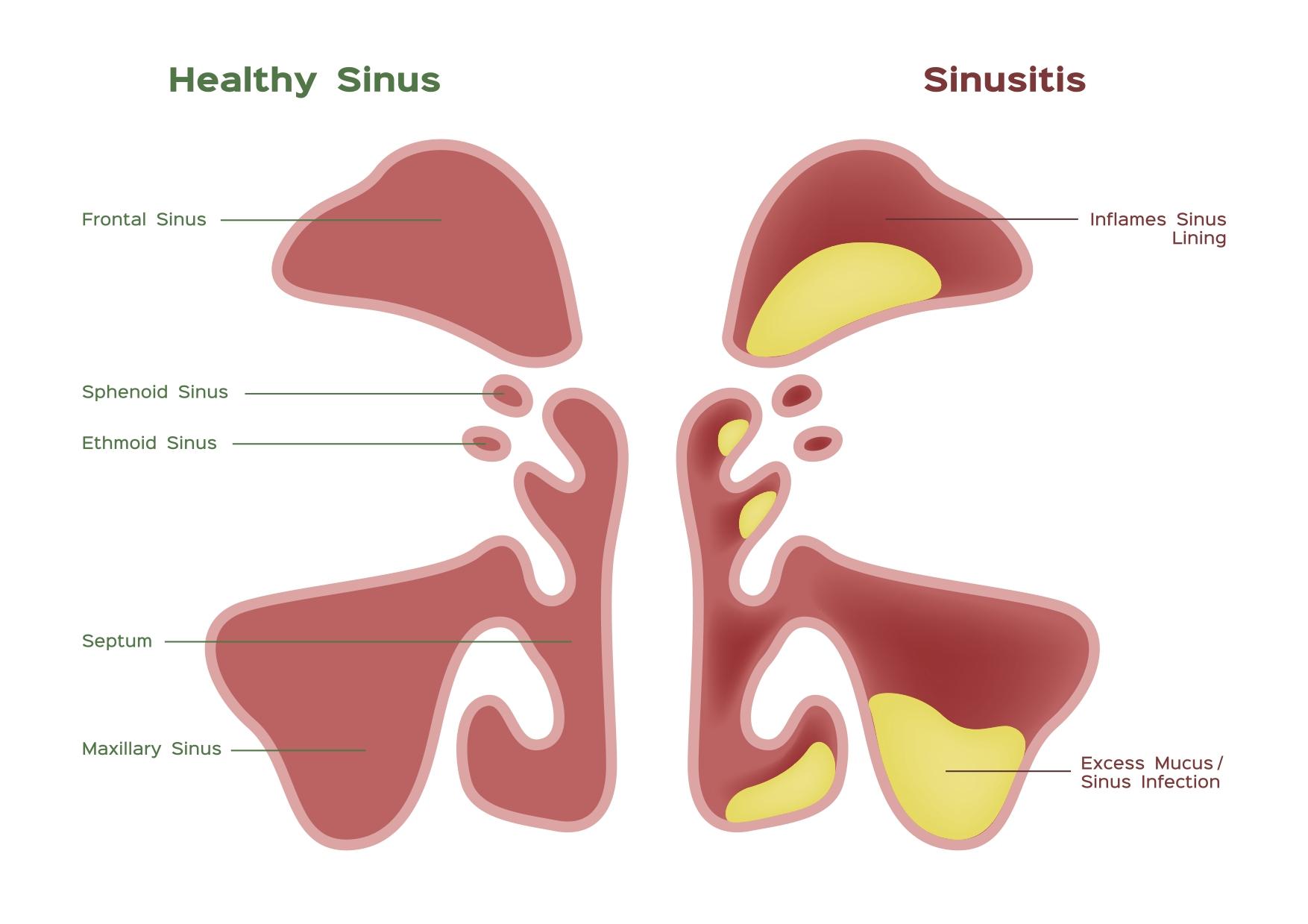Operations Performed:
Endoscopic Sinus Surgery
The sinuses are air-filled chambers that are located within the skull. Their exact function remains unknown.
Sinusitis
When the sinuses become obstructed secretions can pool and lead to inflammation and infections. If the process persists a condition called chronic rhinosinusitis develops manifesting with symptoms such as an altered sense of smell, nasal congestion, a runny nose, post nasal discharge and facial pressure
When medical treatments fail to resolve the inflammation, surgery is often indicated.
The aims of endoscopic sinus surgery are to remove as much inflammatory disease as possible, ventilate the sinuses and increase their access to topical medications that can control the disease.


Indications for endoscopic sinus surgery
- Recurrent acute sinusitis ( > 4-6 infections per year)
- Chronic rhinosinusitis not responsive to medical management
- Tumours
- Repair of brain fluid leaks
What to expect with the procedure
Endoscopic sinus surgery can take between 1-3 hours depending on the indication, extent of surgery required, a patient’s anatomy and the extent of inflammatory disease. It is performed under general anaesthetic in hospital. The surgery is done entirely through the nose, with no external incisions or bruising. Using endoscopic equipment, inflamed tissue and polyps are removed and the natural openings of the sinuses widened. Post-operatively dissolvable packing may be applied if deemed necessary. Non-dissolvable gauze packing is not used by Professor Psaltis due to the discomfort it causes and the potential of causing internal scarring.
After a short period in recovery, you will be transferred to a ward. Here you will be observed for 24 hours before being discharged home. Following review the next morning you will be discharged home with post-operative medications. The nursing staff will show you how to perform post-operative Flo- Sinus irrigations which are essential for post-operative healing.
Most people surprisingly do not experience too much pain from surgery and typically only require paracetamol when they are discharged home from the hospital. Stronger pain relief is prescribed if required. Due to the internal swelling from the surgery, it is not unusual to feel congested for the first week after surgery and experience bloody ooze from the nose. I recommend you irrigate your nose with FLO sinus irrigation 4x day to remove any clots and dissolve the packing material. Usually, patients require 1-2 weeks off work. ( Post-operative instructions)
I will usually review you 2 weeks after the procedure. At the first post-operative review, any congealed blood, clots or dissolvable packing is removed.